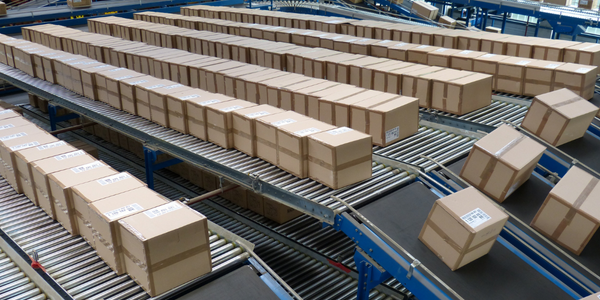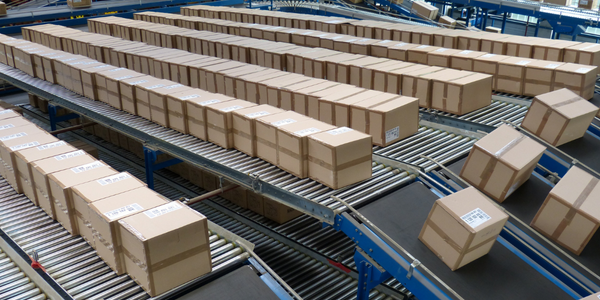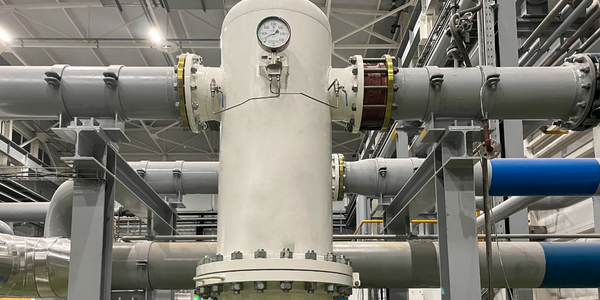Technology Category
- Platform as a Service (PaaS) - Application Development Platforms
Applicable Industries
- National Security & Defense
- Packaging
Applicable Functions
- Maintenance
Use Cases
- Construction Management
- Tamper Detection
Services
- Cloud Planning, Design & Implementation Services
About The Customer
Smurfit Kappa is one of the leading manufacturers of corrugated and solid board packaging. The company employs approximately 38,000 people and operates in about 30 countries worldwide. In the Netherlands alone, Smurfit Kappa has 22 factories. The company produces most of its raw materials within its own paper mills, which are processed along with other Point-of-Sale material (POS), consumer packaging, and displays. Smurfit Kappa's customers include leading organizations such as Unilever, The Greenery, and Quick.
The Challenge
Smurfit Kappa, a leading manufacturer of corrugated and solid board packaging, faced a significant challenge in managing its IT infrastructure. The company's IT division was responsible for managing all servers and domains in the Active Directory of the Smurfit Kappa Group, which ran in two data centers located in Amsterdam and Nieuwegein. The division was also tasked with information security management, dealing with incidents of spam, malware, and data theft or loss. The team was dealing with an average of 350 security incidents per week, a daunting task. Additionally, as a global company, Smurfit Kappa had to comply with Sarbanes-Oxley laws and regulations (SOX), which imposed strict requirements for data storage. The existing solution was high maintenance and required continuous monitoring. The company needed a solution that could delegate responsibilities, reduce tasks for IT operations, and manage 56 email domains and 532 DNS servers across Europe, Russia, South America, and Mexico.
The Solution
Smurfit Kappa decided to implement the Forcepoint platform after a successful pilot project. The company was looking for a solution that could handle proxy, content categorization, and virus scanning, along with advanced reporting capabilities and customizable categories. Forcepoint Web and Email Security proved to be the best fit for Smurfit Kappa. The company implemented four appliances, two in each data center. However, the Forcepoint solution could be managed from a single console, making it a highly flexible, hosted solution. The Forcepoint solution also offered the advantage of operating in the cloud, providing an extra layer of security and control. The cloud feature allowed email to be checked at the door of the data centers, preventing many threats from entering the system.
Operational Impact
Quantitative Benefit

Case Study missing?
Start adding your own!
Register with your work email and create a new case study profile for your business.
Related Case Studies.

Case Study
IoT Data Analytics Case Study - Packaging Films Manufacturer
The company manufactures packaging films on made to order or configure to order basis. Every order has a different set of requirements from the product characteristics perspective and hence requires machine’s settings to be adjusted accordingly. If the film quality does not meet the required standards, the degraded quality impacts customer delivery causes customer dissatisfaction and results in lower margins. The biggest challenge was to identify the real root cause and devise a remedy for that.

Case Study
Zenon the Ideal Basis for An Ergonomic HMI
KHS develops and produces machines and equipment for filling and packaging in the drinks industry. Because drinks manufacturing, filling and packaging consist of a number of highly complex processes, the user-friendly and intuitive operation of equipment is increasingly gaining in significance. In order to design these processes as simple as possible for the user, KHS decided to introduce a uniform, transparent and standardized solution to the company. The HMI interface should meet the requirement for people with different qualifications and enable them to work on a standard platform.

Case Study
Data Capture for Afghanistan Forces
Electronic equipments on the field of Afghanistan provided information on the status of the vehicle and to identify potential threats surrounding it to the British Force. The monitoring and interpretation of this data requires robust and sophisticated digitization for data capture and communication.

Case Study
Sparks Dynamics Assists Atlas Container Secure a $15,000 BGE Energy Rebate
The ReMASTER Compressed Air Monitoring system was installed in 2015. This system is capable of monitoring compressed air system parameters on a continuous basis and transferring that information to a cloud server which can be accessed by Atlas Container personnel, Industrial Diagnostics and Sparks Dynamics. This information was collected into a database which can be exported to an Excel spreadsheet or displayed graphically using Sparks Dynamics ViewMaster Software. The average annual compressed air electricity expense was estimated to be approximately $116,000. This is based on an incremental $/KWh electric rate of $.091 per KWh and an estimated compressed air energy consumption of 1,279,200 KWH. The implementation phase of Energy Conservation Measures (ECMs) for the Compressed Air System included: • Identification and repair of compressed air leaks • Understanding of compressed air usage per manufacturing machine and installation of shut off valves when the machines are no longer in production mode • Identification of misapplications of compressed air to include blow offs, venturis, and cooling scenarios • Understand system pressure requirements and potential installation of point of use pressure regulation.

Case Study
Mondi Implements Statistics-Based Health Monitoring and Predictive Maintenance
The extrusion and other machines at Mondi’s plant are large and complex, measuring up to 50 meters long and 15 meters high. Each machine is controlled by up to five programmable logic controllers (PLCs), which log temperature, pressure, velocity, and other performance parameters from the machine’s sensors. Each machine records 300–400 parameter values every minute, generating 7 gigabytes of data daily.Mondi faced several challenges in using this data for predictive maintenance. First, the plant personnel had limited experience with statistical analysis and machine learning. They needed to evaluate a variety of machine learning approaches to identify which produced the most accurate results for their data. They also needed to develop an application that presented the results clearly and immediately to machine operators. Lastly, they needed to package this application for continuous use in a production environment.

Case Study
Automated Pallet Labeling Solution for SPR Packaging
SPR Packaging, an American supplier of packaging solutions, was in search of an automated pallet labeling solution that could meet their immediate and future needs. They aimed to equip their lines with automatic printer applicators, but also required a solution that could interface with their accounting software. The challenge was to find a system that could read a 2D code on pallets at the stretch wrapper, track the pallet, and flag any pallets with unread barcodes for inspection. The pallets could be single or double stacked, and the system needed to be able to differentiate between the two. SPR Packaging sought a system integrator with extensive experience in advanced printing and tracking solutions to provide a complete traceability system.







